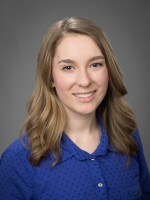Presbyterian Pastor Tom Willadsen and Lee Hernandez are Northern Nevada residents who participated in the One Small Step conversation program. In partnership with StoryCorps, KUNR connects people with different political values through dialogue.
They discuss their common Midwestern roots and explore their views on religion’s role in politics.
Tom Willadsen: So, Lee, where in the Midwest did you grow up? I also have Midwestern roots.
Lee Hernandez: I grew up mostly in Iowa and South Dakota. I do have to say that when I saw your bio, I was really excited.
Tom: The idea of being excited about meeting someone from Peoria, Illinois is stunning to me, but kind of nice.
Lee: Yeah? Back to you, Tom, if you could briefly describe, in your own words, your personal political values.
Tom: The people who are working for the government are our neighbors. The office I worked in was responding to changes in federal immigration law. I came away with this sense of, just admiration, and I would even say trust, for people who work in government. I’m puzzled when the government is presented as the “enemy” or “we can’t trust it”.
Tom: Lee, what's your take on state and local elected officials requiring visibility for certain religions to be in the education system?
Lee: I don’t want any religion to have a favorable position vis-à-vis some other religion. Before my kids were homeschooled, they went to a Catholic school. So that should tell you a little bit about something. I want the Ten Commandments to be part of their education.
Now, if you’re in a public classroom, should you have the Ten Commandments there? Well, let’s see. Who does that foot with? It’s going to foot with Christians. It’s gonna foot with Jews. But how would a Hindu feel about that? How about a Buddhist? If most people don't have an issue with it, now, we're back to not necessarily a religious question anymore, but a social norm. Majority rules, if most of the people want it there, fine, put it there. But for me personally, I would say, this in a public classroom, I don't want to alienate other religions that also have that spark of the divine.
Tom: Yeah, I have thought about this at great length and in great depth. It's not up to government to post a holy text into a public space. That doesn't belong there. As I read the First Amendment, government can neither impede nor encourage any particular faith tradition.
And the thing that irritates me most about this, if we can get the Ten Commandments into our classrooms, they will suddenly have this magical effect of ending whatever immorality or lawlessness the people who have passed this legislation perceive and fear, and that's not true.
Tom: Lee, is there anything you learned about me today that surprised you?
Lee: Yes, there was. Coming into here, I wasn't sure what I am. So am I liberal? Am I conservative? I don't know. And I thought: “Maybe I'm just left of center.” After talking to you, I was thinking: “No, Tom I think is the person who's left of center and maybe I'm right of center.”
So it's kind of doing a number on what I thought of you, coming in. You know, you're the pastor, you're going to be more right-leaning.
When you were talking about, “Well, I think everyone that's in government is really doing important work and doing things for the best,” when I heard you say that, I think the South Dakota upbringing kind of kicked in and was like, “No, small government is really what you want, so then you can do whatever you want.” I'm speaking in hyperbole and I'm being facetious here, but that really did a number on me. That was the surprise thing that I heard from you.
This One Small Step segment was produced by Alysha Cancino, a student at the Reynolds School of Journalism. She co-facilitated the full conversation with Natalie Van Hoozer.
Sign up to participate in KUNR’s 2024 One Small Step program here.
Nevada Humanities is a key community partner for this KUNR program.
StoryCorps’ One Small Step and the Radio Station Hubs are made possible by the Corporation for Public Broadcasting.








